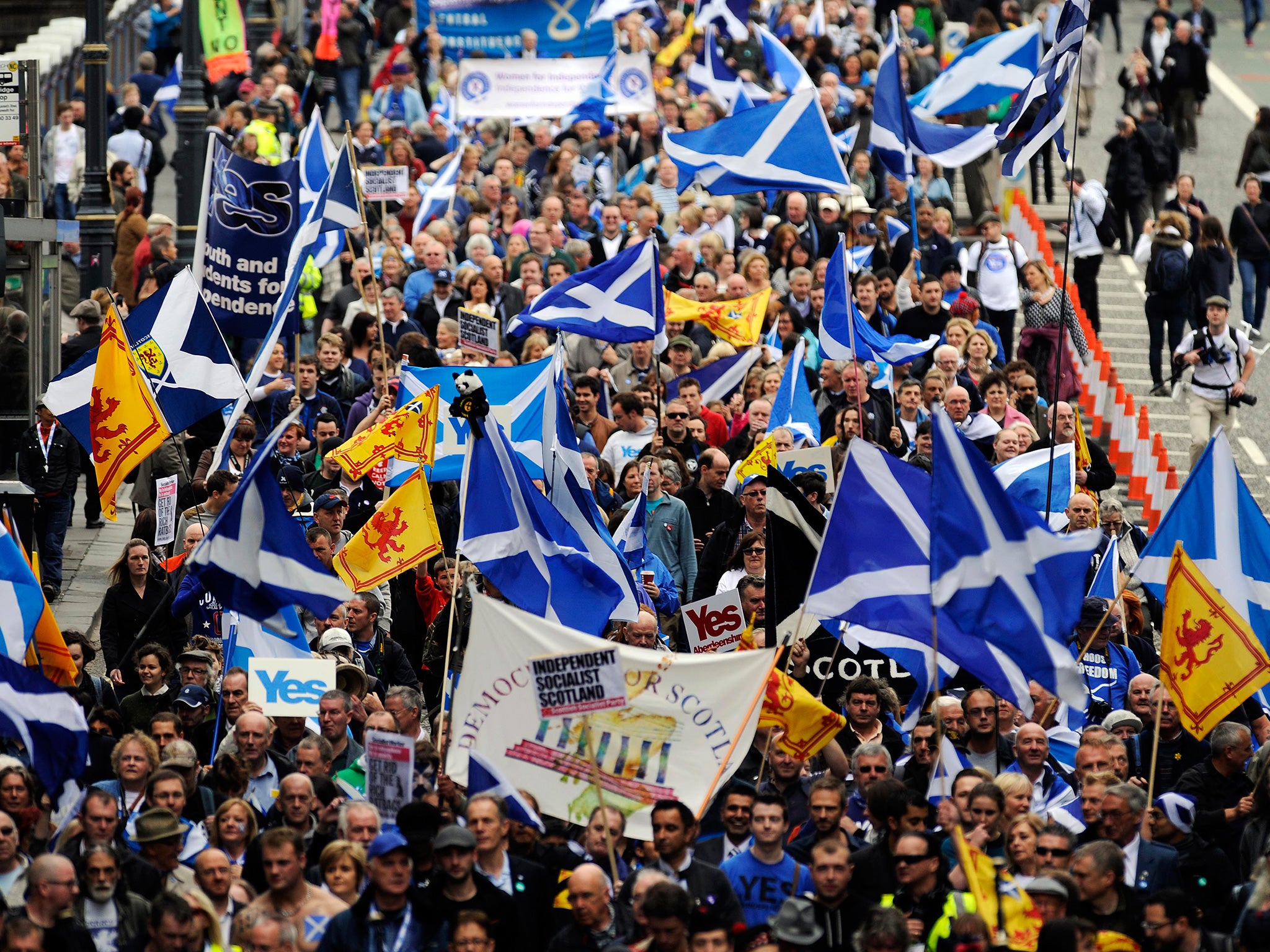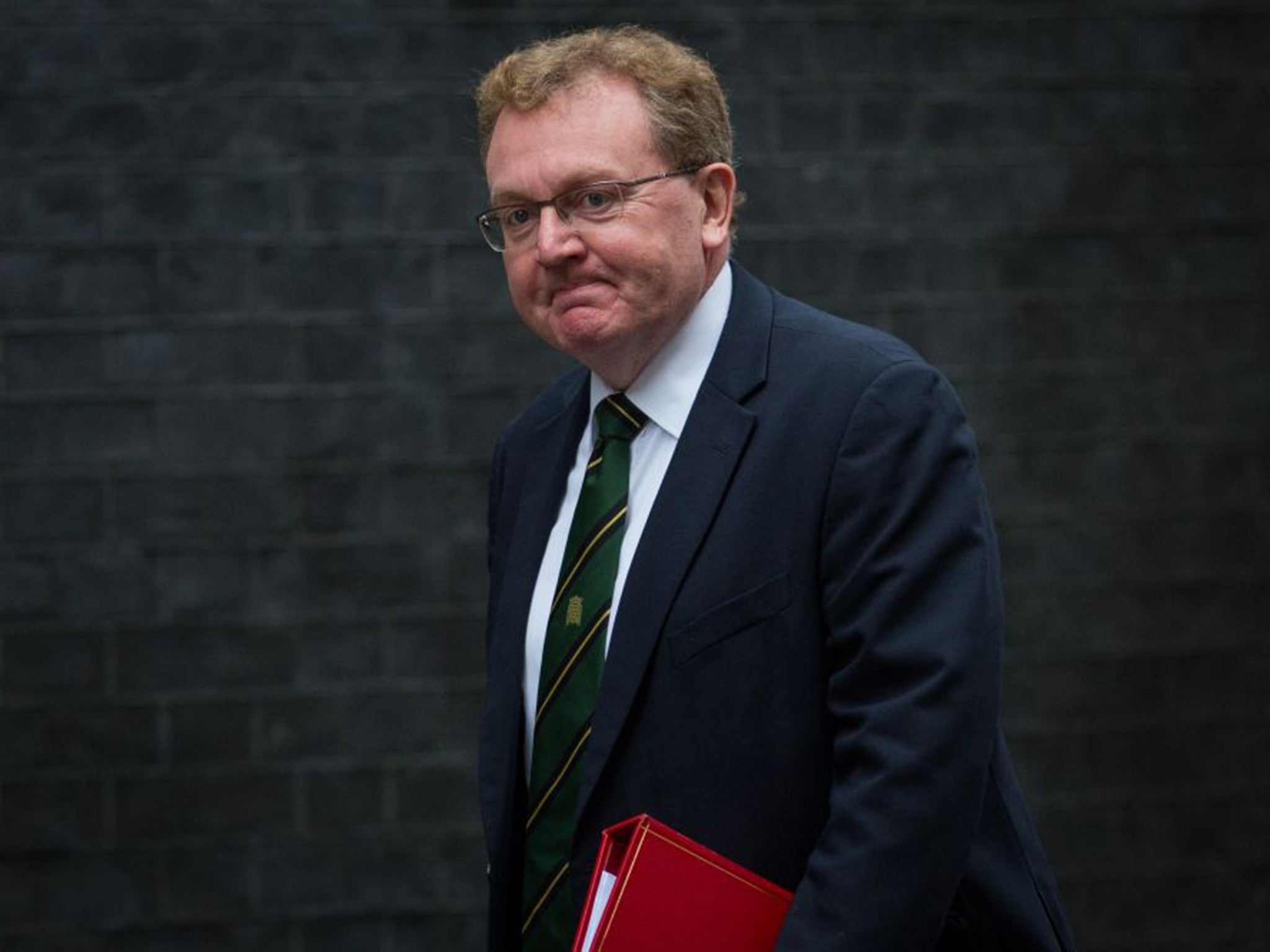Talk of second referendum will damage Scotland's economy, says Scottish Secretary David Mundell
Mr Mundell said the SNP should learn from problems seen in Quebec

Scotland’s economy will be badly damaged if the SNP keeps talking up the chances of a second independence referendum, the Scottish Secretary, David Mundell, has claimed.
Mr Mundell, who is the only Conservative MP in Scotland, said the SNP should learn from problems seen in Quebec. He said the province had suffered after a plebiscite in 1980, when nearly 60 per cent of voters decided to remain part of Canada, which was followed by years of speculation over another poll that eventually followed, with the same result, in 1995.
He told The Independent on Sunday: “The SNP will damage Scotland’s economy if they don’t give up the idea of having another referendum any time soon.
“Business can cope, and the economy can cope, with having a referendum and then having an outcome. What it will struggle with is if it were constantly debating whether we’re going to have another referendum and there is uncertainty.
“I just think it doesn’t do Scotland any good, it doesn’t do the economy any good and it doesn’t do actually political debate any good just to be going on constantly going on about another referendum.
“There are just some fundamentalists in the SNP who cannot think of about anything else but a referendum.”
Scotland’s first minister, Nicola Sturgeon, has irritated her most nationalist supporters by saying there will not be an immediate re-run. But independence remains her ultimate ambition: she argues a second referendum is likely should there be “a fundamental change of circumstances”, such the UK voting to leave the EU, or there is “a strong indication” that the no voters have changed their minds.

Angus Robertson, the SNP’s leader in the Westminster, has said that there will be “a growing desire” in Scotland for independence that will lead to a Yes vote next time around.
Mr Mundell, though, believes that most Scots would like to “move on” from last year’s poll, in which the No vote won by 55.5 per cent to 44.7 per cent. He says speculation on another vote could mean businesses question their investment north of the border if they aren’t certain of Scotland’s future status.
Pete Wishart, the SNP MP who chairs the House of Commons’ powerful Scottish affairs select committee, said that there was “absolutely no evidence” to back up Mr Mundell’s argument. He added that the referendum debate had “energised political life” in Scotland.
The Scotland Bill, which devolves substantial powers from Westminster to the Holyrood Parliament in Edinburgh, passed its latest stage in the House of Lords last week. Mr Mundell is determined to have the bill on the statute books ahead of the Scottish elections in May, but some peers were concerned that the minutiae of the block grant that helps to fund Scotland’s budget were not settled.
Join our commenting forum
Join thought-provoking conversations, follow other Independent readers and see their replies
Comments
Bookmark popover
Removed from bookmarks